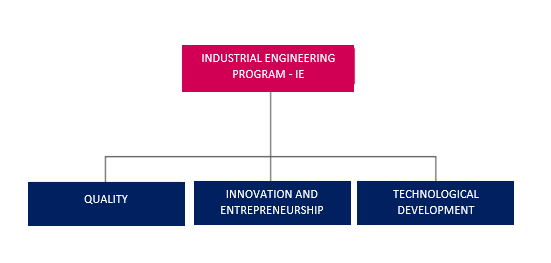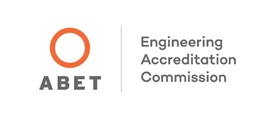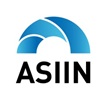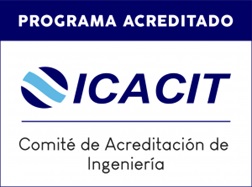http://desaku.jepara.go.id/js/
http://desaku.jepara.go.id/tes/
http://kendi.jepara.go.id/upload/plsa/
http://kendi.jepara.go.id/assets/
http://kendi.jepara.go.id/tests/
https://fik.umj.ac.id/stats/5000/
https://fik.umj.ac.id/stats/thai/
https://pkm.umj.ac.id/stats/demo/
https://pkm.umj.ac.id/stats/bola/
https://tekim.umj.ac.id/stats/kambo/
https://tekim.umj.ac.id/stats/hoki/
https://untag-press.untagsmg.ac.id/.tmb/
https://untag-press.untagsmg.ac.id/.well-known/
https://stipjakarta.ac.id/wp-content/uploads/2021/12/sgacor/
https://stipjakarta.ac.id/wp-content/uploads/nano/
https://uatcompanion.classification.gov.au/
http://dpmptsp.merauke.go.id/assets/img/
http://dpmptsp.merauke.go.id/assets/img/website/
INDUSTRIAL
INDUSTRIAL ENGINEERING
The Industrial Engineering Program (IEP) is part of the College of Engineering and Architecture (CEA) and is responsible for the professional training of new industrial engineers with the skills required for their professional success and under the values and principles demanded by society.
The IEP is committed to national development through the training of industrial engineers with solid knowledge, practical application of theory, spirit of innovation, and a clear focus on social and environmental responsibility.
OUR MISSION
We are a program that trains industrial engineers of high scientific and technological level, oriented to research, with solid humanistic, ethical and moral values. We have the appropriate resources to contribute to sustainable development, innovation and the promotion of entrepreneurship in the country.
FIELD OF ACTION
The Industrial Engineer can be incorporated without problems to public and private institutions covering areas as wide as administration and management, operations research, ergonomics, quality control and engineering, process and systems optimization, project formulation and development, among others. This versatility and holistic view of processes make it very useful in large and small companies.
Academic Degree and Professional Title awarded:
Degree: Bachelor in Industrial Engineering
Title: Industrial Engineer
Duration: 10 semesters
Type of teaching: face to face
Study regime: Semester
Language: Spanish
The Industrial Engineering graduate has received solid academic training to develop professionally in different areas, such as: administration and management, operations research, ergonomics, production, quality, optimization of processes and systems, finance, project formulation and management, among others. others, becoming the engineering that offers the greatest employability in companies in different areas, in the public and private sectors, as well as; in independent professional practice.
Industrial Engineering studies the rational use of human, technical, material and information resources, and the optimal management of systems for the transformation of goods and services, with the purpose of obtaining products or services useful to society and with respect for the environment. The formation of the Industrial Engineer in our university is based on the development of competences that prepare him/her to successfully face any challenge in any field. Also, a socio-humanistic training that allows a critical attitude and contributes to its location in society, so that their professional development is exercised with full awareness and responsibility. At the end of his studies he will be able to study the system, understand the problem or opportunity and propose and carry out innovative and adequate solutions to the requirements of the interested parties, applying the scientific, theoretical and humanistic knowledge learned.
The educational objectives of the program describe the achievements that an industrial engineering professional can accomplish in his professional performance, which have been defined with the participation of the program’s constituents: students, teachers, graduates, representatives of companies and professional institutions.
EDUCATIONAL OBJECTIVES OF THE INDUSTRIAL ENGINEERING PROGRAM
- Analyze, design, develop, implement and/or improve integrated organizational systems with a sustainable, innovative and entrepreneurial approach.
- Rationally and optimally utilize available resources in order to satisfy the needs of society.
- Practice an ethical and moral professional practice with social responsibility, shared value and care for the environment.
- Lead, direct and/or actively participate in multidisciplinary work teams using effective communication.
- Acquire new competencies to continuously improve their performance in the environments where they operate.
Our industrial engineers can work in public or private institutions, working in different areas such as administration and management, operations research, ergonomics, production, quality, process and systems optimization, finance, project formulation and management, among others. And they can work in different types of companies, such as food and beverage production, manufacturing, textile, mining, oil, chemical, financial, construction, pharmaceutical, services, etc.
The graduate of the industrial engineering program has developed competencies, knowledge and values that he/she has developed in a theoretical and practical way during his/her undergraduate education.
Student Learning Outcomes concisely describe the profile that our graduates should have and that is a product of the academic training process, these competencies are:
(1) Ability to identify, formulate, and solve complex engineering problems by applying the principles of engineering, science, and mathematics.
(2) Ability to apply engineering design to produce solutions that meet specific needs considering health, safety, and public welfare, as well as global, cultural, social, environmental, and economic factors.
(3) Ability to communicate effectively with different types of audiences.
(4) Ability to recognize ethical and professional responsibility in engineering practice and to make informed judgment, which should consider the impact of engineering solutions in global, economic, environmental, and social contexts.
(5) Ability to work effectively in teams, exercising leadership, creating collaborative and inclusive environment, set goals, plan tasks, and accomplish objectives.
(6) Ability to develop and conduct experimentation appropriately, analyse and interpret data, and use engineering judgment to draw conclusions.
(7) Ability to acquire and apply new knowledge as needed, using appropriate learning strategies.
(8) Ability to manage projects and demonstrate knowledge and understanding of the principles of engineering management.
The industrial engineering curriculum is comprehensive and is made up of subjects from the following curricular areas:

The Industrial Engineering Program (IEP), aware of the technological needs of SMEs and MSEs in Peru, has been developing Applied Research projects since 1998 with the objective of contributing to the technological improvement that allows micro and small companies to become more competitive in the global market, EPII is a professional school accredited by ABET, ASIIN and ICACIT, which allows it to have a world-class academic program and to systematize its academic practices by interrelating them with the needs of the productive sector, maintaining an adequate relationship with its constituents (Students, Teachers and Entrepreneurs). Considering the current context of the University Law N°30220, which establishes the Basic Conditions of Quality (CBC) that establishes Scientific Research as one of the fundamental components of university education. The research activities of the EPII are aligned with the standards required by these entities, but according to the continuous improvement processes to which the program is subject, considering the Frascati manual of the OECD, the National STI Plan and the National STI Plan of CONCYTEC.
.

Links to the integrative course and IEP research centers:
PROYECTO FINAL DE INGENIERÍA INDUSTRIAL (CAPSTONE DESIGN COURSE)
CENTRO DE INVESTIGACIÓN EN PRODUCCIÓN INDUSTRIAL – CIPRI
CENTRO DE INNOVACIÓN Y DESARROLLO DE PRODUCTOS ALIMENTICIOS – CIDPA
The Industrial Engineering Program is accredited by the most prestigious international and national engineering agencies:
Accreditation Board for Engineering and Technology – ABET
Engineering accrediting agency considered one of the most prestigious in the world, with headquarters in Baltimore, USA.
IEP has been accredited by ABET since 2009 to date.

Accreditation Agency for Degree Programmes in Engineering, Informatics, the Natural Sciences and Mathematics – ASIIN
German accrediting agency specialized in engineering, computer science, science and mathematics programs, which has the highest standards in training criteria in Europe.
IEP has been accredited by ASIIN since 2008 to date.

Euro-Ace Label
Distinction granted to the EPII thanks to the accreditation with ASIIN, with which all our graduates receive the European «Diploma Supplement» that allows them student mobility to pursue studies in any country in the European area.
The IEP has the EUR-ACE Seal since 2008 to date.

Instituto de Calidad y Acreditación de Programas de Computación, Ingeniería y Tecnología en ingeniería
Peruvian specialized accrediting agency member of the Washington Accord.
IEP has been accredited by ICACIT since 2009 to date.

DOUBLE DEGREE WITH THE UNIVERSITY OF MISSOURI U.S.A.
The Collaborative Academic Program (CAP) is composed of three phases.
Phase I: Selection and admission to the USMP-MU double degree program.
- All Industrial Engineering students can apply to the program (The student travels from the 8th grade or the equivalent in credits after evaluation).
- Applicants will be evaluated taking into account academic, disciplinary and English language proficiency. Details can be found at the following link: https://admissions.missouri.edu/apply-international/
- Admitted students must take one year of studies in Missouri (according to the courses indicated at the time of admission to the dual degree program).
- A minimum English level of 79 TOEFL points is required, if the student does not reach the minimum level, he/she can be admitted conditionally and take an intensive English course at the Missouri campus. https://international.missouri.edu/cell/
- Students who pass the evaluation process will be admitted to undergraduate study at MU under the CAP program. MU will provide certificates of visa eligibility to USMP students accepted and admitted to the program. USMP students will use the certificates to apply for and obtain student visas from the U.S. consulate. USMP students are responsible for paying the government visa application and associated visiting student fees.
Phase II: Study at the University of Missouri (MU).
- A student admitted to the program must complete coursework at MU within one year.
- During the time of Phase II studies the student will be considered a Missouri undergraduate student who must comply with the regulations of the University of Missouri and the United States of America.
Phase III: Additional year to pursue a master’s degree at MU (optional)
- Students upon receipt of the baccalaureate degree may apply for admission to the Master of Science degree with a major in Industrial Engineering at MU.
Important
Students in Phase II and III will be responsible for all costs of study at MU. The cost will include domestic and international transportation, room and board, insurance, and all prescribed fees to be charged by MU. The base rates for Phases II and III are the non-Missouri resident rates published by MU. Current tuition and fees can be found here:
https://financialaid.missouri.edu/cost-of-attendance/graduate.php
These rates may be adjusted at the sole discretion of MU. Participating CAP students are not eligible for tuition support through the Graduate Student Support Program (GSSP).
INTERNATIONAL AGREEMENTS
Argentina
Universidad Católica de SALTA (UCASAL)
Universidad del Salvador
Brasil
Universidade do Estado do Rio de Janeiro
Universidade De São Paulo
Chile
Universidad Del Pacífico
Universidad Católica de la Santísima Concepción de Chile
Universidad de Valparaiso
Colombia
Universidad Autónoma de Bucaramanga
Universidad de Medellín
Universidad Javeriana
Universidad del Rosario
Universidad de EAN
Universidad Santo Tomás
Universidad de la Sabana – Colombia
Universidad Sergio Arboleda
Universidad Alexander Von Humboldt De Armenia
Spain
Universitat Autónoma de Barcelona
Universidad de Zaragoza
Universitat de Girona

IISE San Martin Chapter, is a student group of the Professional School of Industrial Engineering of the University of San Martin de Porres, members of the IISE – Institute of Industrial and System Engineers. It seeks to be a group that disseminates knowledge of the career of Industrial Engineering in Peru, able to cooperate with the formation of future professionals.

The IEOM USMP Student Chapter is a student group, ascribed to the Industrial Engineering and Operations Management Society International, according to its acronym IEOM Society International and by these bylaws.
The IEOM USMP Student Chapter is a NON-PROFIT student group. The activities it carries out are strictly related to Industrial Engineering and Operations Management, and the resources that may be generated by such activities will be converted into working capital for further activities.
These bylaws shall be in force from the moment of their publication and communication to the members
| PROGRAM | CAMPUS | BACHELOR 2022-II |
| Industrial Engineering | Lima | 41 |
| PROGRAM | CAMPUS | GRADUATES 2023-I | GRADUATES 2023-II |
| Industrial Engineering | Lima | 18 | 22 |
| PROGRAM | CAMPUS | STUDENTS 2023-I | STUDENTS 2023-II |
| Industrial Engineering | Lima | 463 | 422 |
We are here to help you, send your inquiries to the media below or FOLLOW us on our social networks and stay informed with the latest news and faculty events.
Note: Due to the state of emergency use the email account for immediate communication, you can also chat with us by MS Teams.
Av. La Fontana 1250 Urb. Sta. Patricia 2nd stage. La Molina
FEA:(511) 2086000
Administration Office: (511) 2086000 -1162















